‘We must rise up together’: Unions were united in their quest for better pay and conditions during an historic day of strikes in Aberystwyth.
The industrial action saw members from the University and College Union (UCU), the National Education Union (NEU) and the Public and Commercial Services Union (PCS) walk out over the cost of living and anti-striking legislation.
University, school and Welsh National Library staff out on strike
But it was also supported by members from other major unions such as Unite and the Royal College of Nursing (RCN) - many of whom will strike next Monday.
Picket lines were formed outside Penglais School, the university campus and the Welsh National Library in the morning before striking workers came together to march into the town centre.
Songs were sung and speeches were delivered to rapturous applause in a packed-out St Paul’s Methodist Centre in Queens Road.
Cor Gobaith choir (or choir of hope)
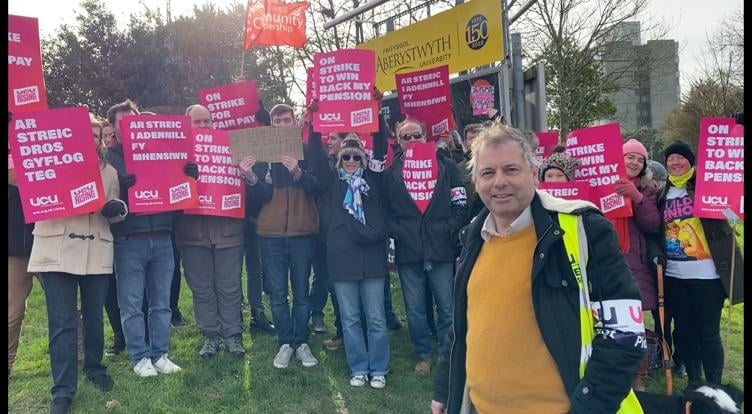
The NEU is demanding a ‘fully-funded above inflation pay rise’ with the aim of eventually alleviating well-documented staffing and retention difficulties in schools.
The union accuses the government of not being serious about solving the ongoing crisis in education in England and Wales.
Members from Penglais School formed a picket line in the morning – while the building was closed to students in years seven to 10. Eight other schools in Ceredigion were partially open on strike day – with others unaffected.
Head of biology at Penglais and NEU secretary in Ceredigion, Kath Edwards, told the audience at St Paul's: “We’d prefer not to strike, we’d prefer to be at schools in our classrooms, supporting our students.
“We’re taking this action as a last resort because of the ongoing crisis in education that the government has failed to resolve.
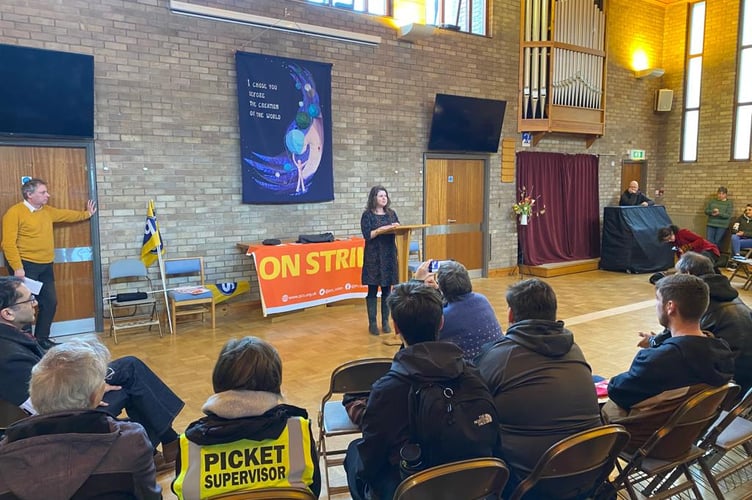
“Teachers’ pay has failed to keep pace with inflation and this along with rising workload and other issues has led to recruitment and retention problems.
“One in four newly qualified teachers leave the profession within two years of qualifying.
“There are schools in Ceredigion with posts that have been advertised but not filled due to a shortage of teachers applying for them.
“Teachers and support staff have effectively lost over 20 per cent of the real-terms value of their pay since 2010.
“We can’t stand by and watch colleagues experiencing financial difficulty despite working in often stressful conditions for 50 to 60 hours per week.”
NEU Ceredigion secretary Kath Edwards addressing the audience
She joined others in condemning the rise in the cost of living and the government’s Strike (Minimum Service Level) Bill – which she decried as an attack on workers’ fundamental democratic rights.
NEU members are set to strike again on 14 February.
The UCU is planning industrial action for 18 days in total, over a period of seven weeks, after no agreement was found with university bosses over pay, conditions and pensions in eleventh hour talks last week.
The union says that 70,000 UCU members will walk out on strike days and, if they go ahead, will be the biggest series of strikes ever to hit UK university campuses.
UCU branch president Professor John Gough said: “Aberystwyth University is 150 years old and it was set up and paid for by members of the community here – the first one in Wales.
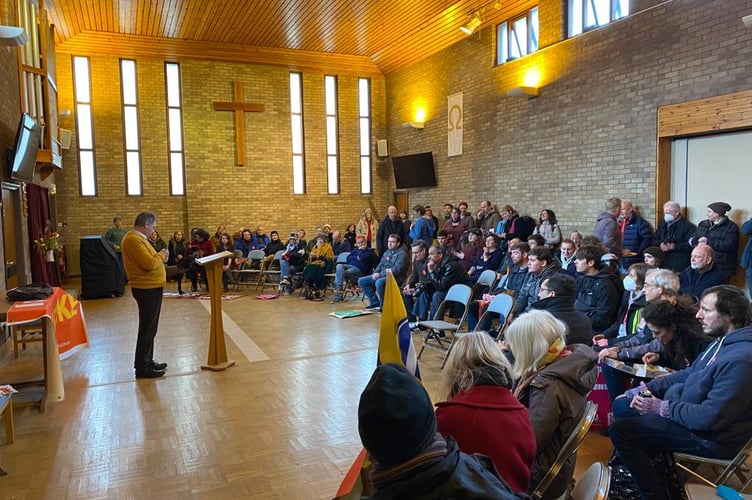
“Rising workloads are really threatening the quality of education in this country while pensions, casualisation and low pay are also concerns."
Speaking to students while strolling around an unusually sparse campus, many seemed unaffected or unconcerned by the strikes – with one student commenting that they didn’t know much about them and another saying he ‘wasn’t fussed’.
But Hector Duncan – who is set to run to become president of the SU – told the Cambrian News: “I believe that most university students do support the strikes because we understand what our university staff do for us.
“They are the integral part of what Aberystwyth University is and university staff all over the country are striking because academia at the moment is a state of crisis.
“We need to ensure that the pay rises with inflation. At this university, since 2009, most staff have had a 25 per cent real-terms pay cut.
“This is an issue that has had an impact on so many people. The cost-of-living crisis isn’t just affecting students, it’s affecting lecturers – it's affected everyone who works at the university so we need to make sure we’re supporting everyone.”
German and Spanish student Dan Whitworth also told the Cambrian News: “I’m here to show solidarity with the lecturers because obviously their conditions affect our education.
“If they have better pay and a less heavy workload, then we get more value for our £9,000 per year that we pay.
“And because it will affect us all in the future if we don’t have pay rises going up with inflation.
“I hope maybe to be a teacher in the future and that would be the situation I’d be going into and the conditions would affect my future career. "
PCS union members at the National Library of Wales are demanding a pay rise in line with inflation and assurances that, nationally, jobs will not be cut after ominous threats from government ministers.
Branch chair Doug Jones said his members were out to support the Trades Unions Congress’ day of action against the government’s so-called anti-strike bill.

He said: “We strike alongside our colleagues at other unions. We’re on strike because of pay – the UK civil service has been offered a two per cent pay rise, but the rate of inflation is 10 per cent at the moment, food is 13 per cent so it’s not coming near the cost of living.
“At the library we’ve been offered four per cent which is real-terms pay cut of six per cent and, again, we need a pay rise that matches the cost of living. Other issues are pensions and jobs.
“We’ve got 40,000 civil servants who are using food banks. We’ve got 47,000 civil servants who are claiming Universal Credit and in the DWP alone you’ve got 25,000 civil servants being paid below the minimum wage. And these are the government’s own employees – it’s an absolute scandal.”
PCS's Doug Jones addressing the audience
A Royal College of Nursing (RCN) member and nurse at Bronglais Hospital said: “I was on my own picket line when we were striking and PCS members came out to show solidarity.
“I think it’s important we stand together because lack of staffing, recruitment problems, retention problems and these come down to pay as well.
“And with us it’s patient safety but we each have a service we’re struggling to protect.”
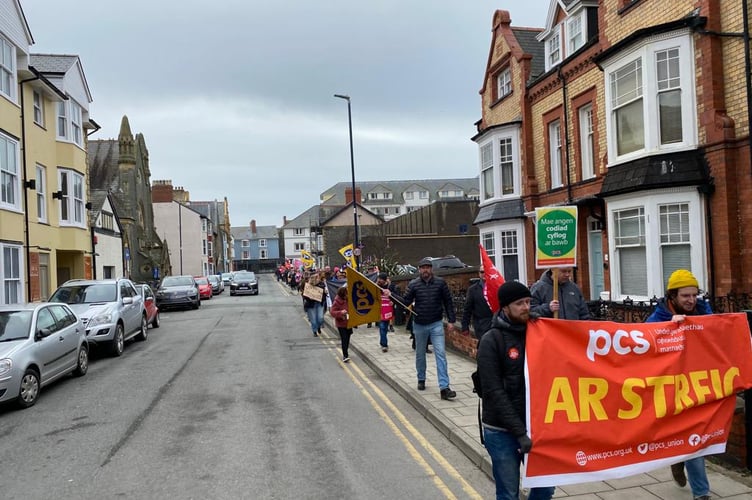
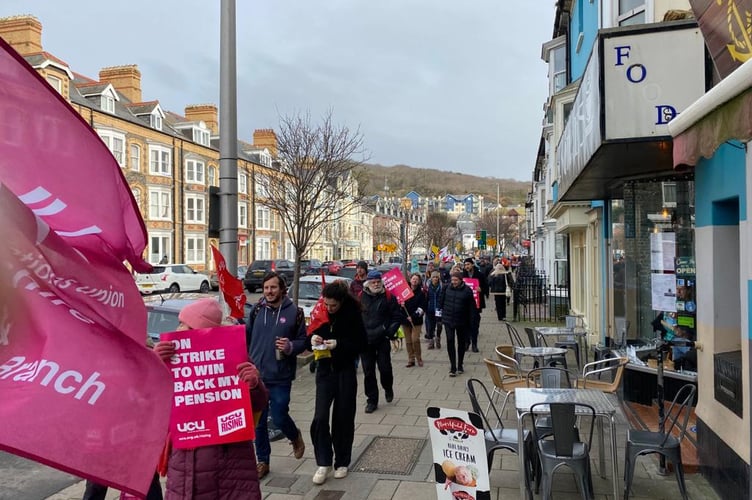
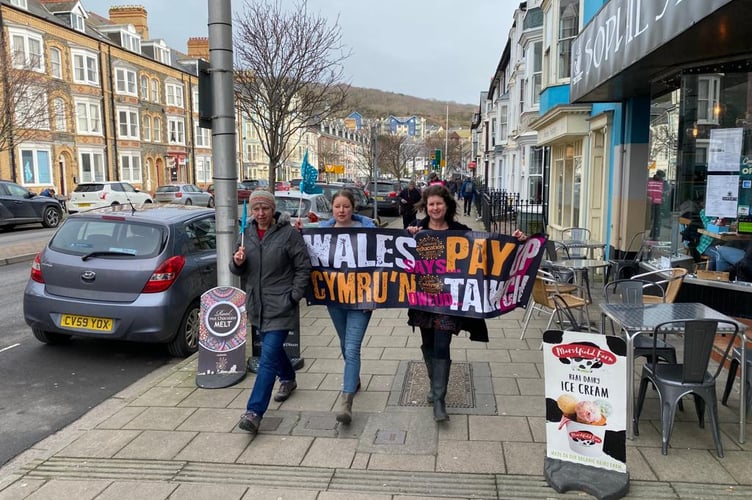
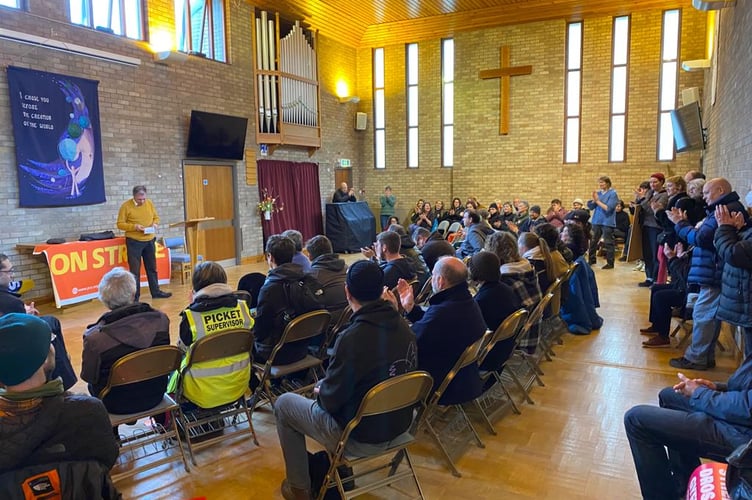
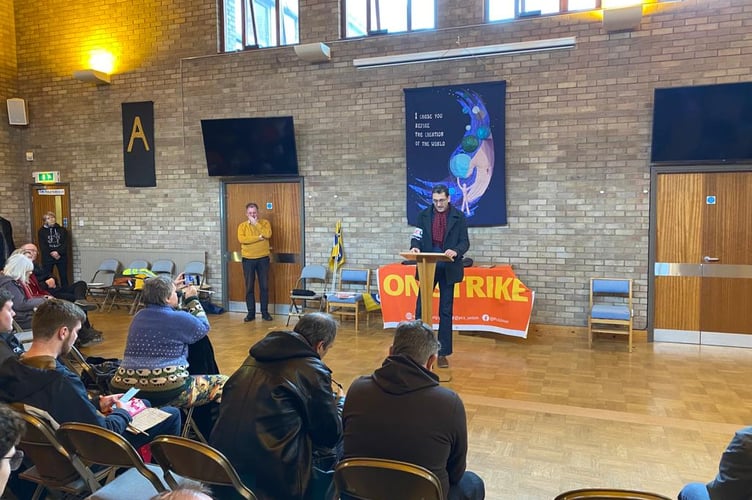
After speeches from Mr Jones, Professor Gough and Ms Edwards, Unite member Dylan Lewis Rowlands told the audience: “It is vitally important that every union and every worker stand together – no matter who you are – in solidarity during every strike.” He was critical of particular unions for not supporting the concerted action.
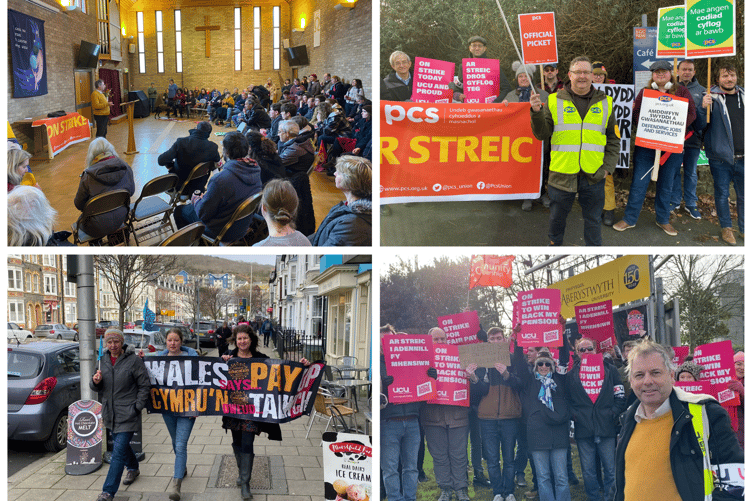




Comments
This article has no comments yet. Be the first to leave a comment.